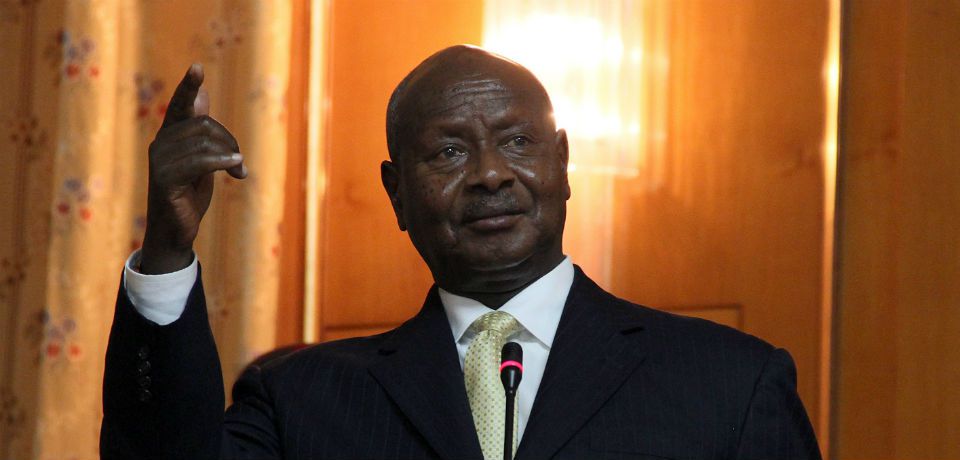PBS: Escaping Eritrea … [Read More...] about ካብ ውሽጢ ቤት ማእሰርታት ኤርትራ
The President of Uganda Kept Calling Israel ‘Palestine’ During Netanyahu’s Visit
Siobhan O’Grady |

In July 1976, Israeli Prime Minister Benjamin Netanyahu’s older brother Yonatan flew some 2,300 miles from Israel to Entebbe, Uganda, where pro-Palestinian hijackers were holding more than 100 people hostage in an abandoned airport terminal.
The elder Netanyahu was part of a small group of elite Israeli commandos sent to assist in the rescue of the hostages, most of whom were Israeli and whose kidnapping was endorsed by then-Ugandan dictator Idi Amin. He was also the only Israeli soldier who would not return home alive from the otherwise successful mission: He was shot outside the Entebbe airport and buried days later in Jerusalem’s Military Cemetery.
On Monday, 40 years after his brother died in Entebbe crossfire, the younger Netanyahu, who has repeatedly pointed to his brother’s death as a turning point in his own pursuit of a career in politics, flew to Uganda to mark the grim twin anniversary.
“This is a deeply moving day for me,” Netanyahu said in a speech in Entebbe on Monday. “Forty years ago they landed in the dead of night in a country led by a brutal dictator who gave refuge to terrorists. Today we landed in broad daylight in a friendly country led by a president who fights terrorists.”
But despite the Israeli leader’s praise for Ugandan President Yoweri Museveni, who has been in power since 1986 and was controversially re-elected for another five-year term this year, the aging Ugandan leader barely made note of Israel in his Monday speech. That’s because Museveni repeatedly called it “Palestine” in what appears to be an embarrassing gaffe, considering that Netanyahu’s visit was meant to mark the anniversary of his brother’s death at the hands of the pro-Palestinian liberation movement’s hijacking.
“The sad event, 40 years ago, turned into another bond linking Palestine to Africa,” Museveni said. “I said this is yet another bond between Africa and Palestine because there were earlier bonding events.”
According to some reports, Israeli radio stations cut off broadcast of Museveni’s speech after his repeated references to Palestine. But Netanyahu, who sat beside Museveni as he made his speech, hardly seemed to flinch.
A representative of the Ugandan government could not be reached by Foreign Policy Tuesday, but Ofwono Opondo, a Museveni spokesman, reportedly tweeted that the Ugandan president hadn’t made a mix-up at all.
“The whole of that land was originally known as Palestine so Museveni’s reference isn’t wrong,” he wrote. The tweet was no longer publicly available Tuesday.
The gaffe didn’t seem to disrupt Netanyahu’s landmark visit to sub-Saharan Africa, the first of any Israeli prime minister in three decades. His itinerary includes Kenya, Rwanda, and Ethiopia, and is meant to reinvigorate Israel’s partnership with the region, which Netanyahu in a speech in Kenya on Tuesday called critical to defeating terrorism.
“I think we see eye to eye on the nature of this problem, and I think Africa and Israel overwhelmingly see eye to eye on this,” he said, pointing to al-Shabab terrorist attacks in Kenya in recent years.
In the mid-20th century, after many African countries had freed themselves from their European colonizers, Israel helped them transition to independent states. But after Arab countries upped their assistance to the continent in the 1970s, many of those aid recipients cut their ties with Israel in an effort to boost the funds Arab leaders promised them.
